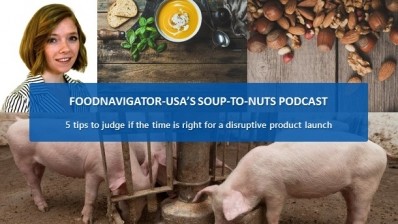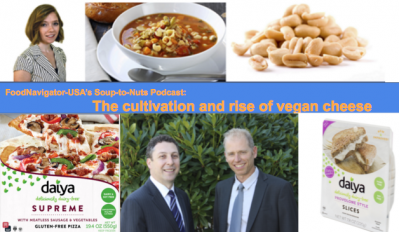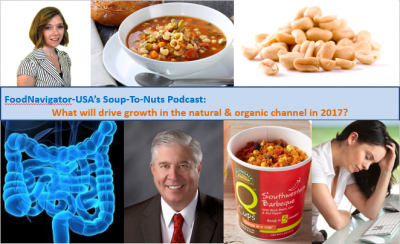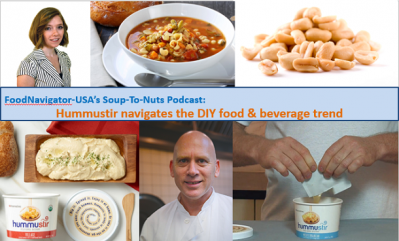Soup-To-Nuts Podcast: Can duck become the dark horse of animal proteins?
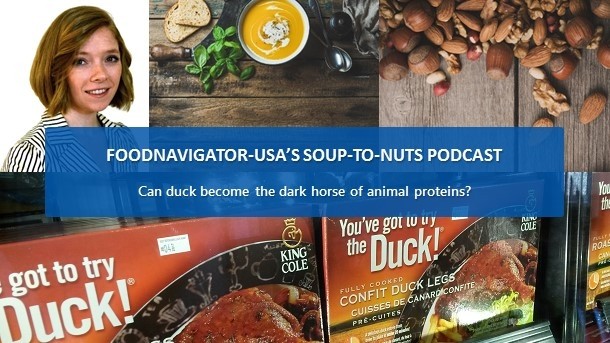
Even consumption of turkey, with its similarities to chicken and positive holiday association, pales in comparison to its poultry-brethren with Americans eating a mere 17 pounds per year.
With such heavy-hitters in the lead, it may seem like a long shot that duck, of which Americans eat merely three-quarters of a pound a year, could come from behind to win the hearts and stomachs of more consumers in the future. But this is exactly what the fourth-generation owners of the Canadian duck farm King Cole are hoping to achieve.
The company’s director of sales and marketing Patti Thompson explains how King Cole is boosting consumption of duck in the North America by reaching out to chefs, developing value-added products for home cooks, competitively pricing its products, ensuring product safety and traceability and sharing with consumers the company’s farm to fork story.
“We have been doing this for 65 years” and part of King Cole’s success is because it is a vertically integrated family farm that can control the quality and has a story that consumers can related to, Thompson said.
“Vertical integration certainly is an expensive way to run your business, but what it gives us as a company is it gives us complete traceability,” she said, noting that knowing where a product comes from is increasingly important to customers at all points in the supply chain.
Another part of the company’s “shtick” is raising its ducks naturally in a way that today’s consumers increasingly want.
“Our farming philosophy has always been … to raise our ducks naturally. So, we don’t need to use antibiotics,” which is something today’s consumers seek, she said. “Now people care more about how their food is grown, thank goodness, and they listen and they are interested and that gives us an opportunity as a company to be stronger in the market place because we have always done that. That is our philosophy.”
While the product is natural, Thompson explains that at this point it is not organic because there simple isn’t enough demand. However, the company is set up to switch to organic when the time is right.
Driving consumer trial and repeat purchase
Providing high quality, natural products that consumers want is only part of the battle. Another key part is driving consumer interest in ducks at a very basic level and teaching them how to prepare it without feeling intimidated is another part.
“In the US, in particular, the duck, like it is here, is still that ‘Oh my gosh, I’ve never tried it,’” Thompson said.
One way King Cole convinces consumers to take that plunge is to offer a wide range of value-added products that make cooking duck at home just as easy as reheating a frozen pizza.
“We have worked really hard to build a year around business and in order to do that we work with chefs” to create products such as smoked duck breast that can used on pizzas, salads, eggs benedict and other familiar formats, she said. Other value-added products that King Cole offers is ready to cook duck spiedini, duck burgers and confit roasted legs.
King Cole also is creating demand for duck by working with chefs to place the meat on more restaurant menus where consumers generally are more adventurous and willing to try something new.
Through these combined efforts to raise awareness and consumption of duck, Thompson is hopeful that King Cole will continue to grow so that future generations of her family can continue to serve future generations of shoppers who are willing to try something new.
